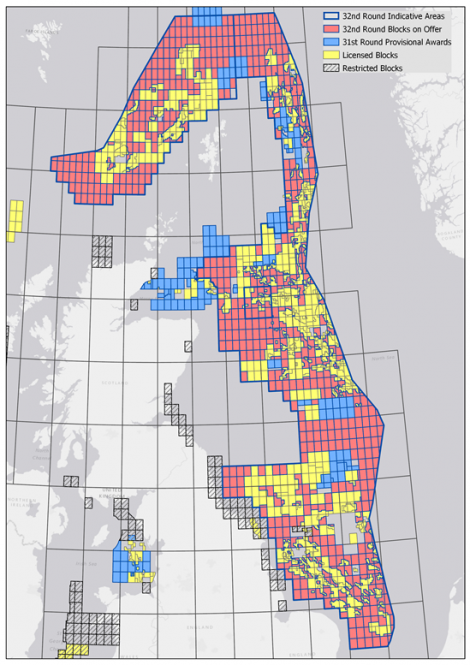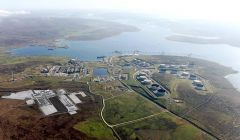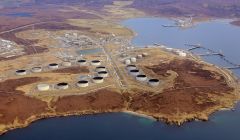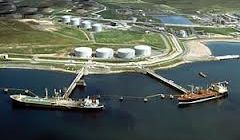Energy / Huge area opened for oil and gas exploration
THE UK’s Oil and Gas Authority has opened up a huge area around Shetland for applications to develop oil and gas as part of its latest offshore licensing round.
The decision to open 768 blocks or part-blocks in UK waters has been welcomed by the local council’s development committee chairman Alastair Cooper, who said there remained a need to extract oil and gas until technology had advanced sufficiently to make that unnecessary.
But the announcement has drawn fire from environmentalists who say it flies in the face of the UK commitment to cut greenhouse gas emissions to net zero by 2050.
Shetland North councillor Cooper also welcomed the OGA making survey results publicly available and the scope of the licensing round indicated there had been some positive results west of Shetland.
Wells with over 300,000 barrels a day production would exceed the capability of offshore loading and would likely come ashore to Sullom Voe.
He added: “There is a lot of interest going to be in the west of Shetland because that is the frontier area now.”
According to the OGA, government forecasts show that oil and gas will “remain an important part of the UK energy mix for the foreseeable future, therefore maximising economic recovery from the UKCS (UK continental shelf) is vital to meet our energy demands and reduce reliance on imports.”
But Scottish Greens branded the decision as “unsustainable and dangerous” given estimates of only 11 years before climate change becomes “irreversible”.
A Greens statement said: “If we are serious about tackling the climate emergency head on, a just transition needs to start right now, not after we’ve extracted every last bit of oil and gas.
“There needs to be an acknowledgement from government and industry that maximum economic extraction of oil and gas cannot happen if we’re going to turn this around. That means investment in the alternatives and securing jobs has to step up immediately.
Become a member of Shetland News
“We can’t burn all the reserves we already know about, and we should not kid ourselves on that further exploration is a responsible option.”
WWF Scotland director Lang Banks said that opening up more areas for oil and gas exploration undermined efforts to tackle the “climate emergency”.
He added: “We instead need to see a just transition that enables us to harness the engineering skills currently deployed in the oil and gas industry and apply them to supporting a range of cleaner forms of energy production.”
Cooper said that much could be done to make fossil fuel production in and around Shetland more carbon clean and that the global demand for hydrocarbons was growing rather than reducing.
He said that while he did not decry the passion of the opponents of wind turbines, green power generated in the isles could drive the production of oil from nearby fields like Clair and onshore operations like Sullom Voe Terminal and Shetland Gas Plant which are the biggest carbon emitters in the isles.
Cooper added: “We are all looking for that (zero carbon) in a way, but at the same time we have to recognise that we need hydrocarbons to power our ships, trains and planes and fertiliser for crops and feed for sheep and cattle.
“Until we do not need oil we will take it out of the ground.”
The government is offering an unprecedented amount of information about the development prospects of each block in the form of “groundbreaking data packs” in “the largest publicly available geochemical database for the UKCS, representing over 90,000 geochemical samples from more than 2,700 wells.”
Historically, companies doing their own survey work have jealously guarded the results rather than share with the industry. This has changed in the 32ndlicensing round with the government undertaking its own seismic work.
Principal Regional Geologist at the OGA Dr Jo Bagguley said: “This latest release of carefully targeted, value-adding data demonstrates the OGA’s continued commitment to supporting industry in its efforts to revitalise exploration.
“We’re particularly excited about the geochemical database and the release of the SNS Megasurvey and look forward to seeing these, and the other released data packs, being used to good effect to support both 32nd Licensing Round applications and ongoing exploration activity in the basin.”
Become a member of Shetland News
Shetland News is asking its many readers to consider paying for membership to get additional features and services: -
- Remove non-local ads;
- Bookmark posts to read later;
- Exclusive curated weekly newsletter;
- Hide membership messages;
- Comments open for discussion.
If you appreciate what we do and feel strongly about impartial local journalism, then please become a member of Shetland News by either making a single payment, or setting up a monthly, quarterly or yearly subscription.












































































